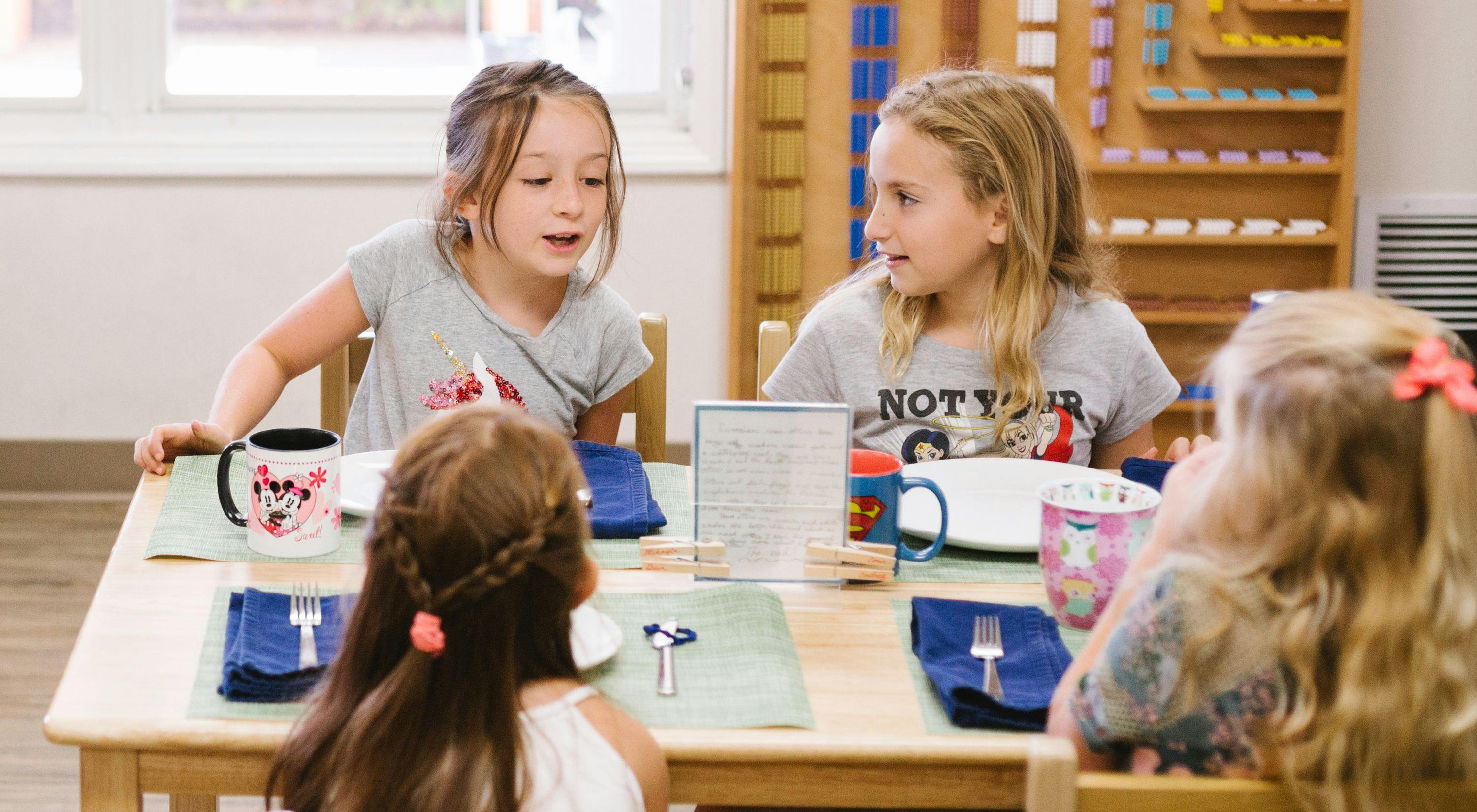Elementary Practical Life
Overview
Our Montessori elementary classrooms afford students significant autonomy over their work. Gone is the day dominated by students moving en masse, from class to class, scheduled in short blocks of time. Gone is the role of the teacher in micromanaging student's work and responsibilities.
The Montessori classroom is instead organized primarily around a three-hour work cycle, a block of protected time in the morning. During this time, the teachers give lessons to individuals or small groups of students while students not in lessons organize themselves, follow up on lessons received previously, and manage the work to accomplish in the day.
More specific elements of the Montessori elementary approach to the culture of work include:
- An overall culture of responsibility. In addition to being encouraged to develop independence and choose her own work, each child is also responsible for being prepared with all materials for lessons, for completing all follow-up tasks and independent work, and for keeping accurate records of work completed. Active stewardship is a part of the class culture, inclusive of care of the class environment and other jobs that need to be done on a daily basis to keep the class running smoothly. Natural consequences occur and logical consequences for not acting responsibly also ensue and are part of the boundaries of independence.
- Complex work demanding of organizational skills, project planning, and self-reflection. Executive functioning and self-regulation skills are strengthened and practiced through the approach to work. These skills and habits of mind are reinforced as children manage their own schedules and complete follow-up assignments after a lesson or conceive of, plan for, and successfully execute progressively larger projects over weeks, months, or years.
- A long work cycle featuring few or no interruptions. With fewer daily interruptions, such as bells for recess or regimented lesson intervals, students are able to follow through with persisting with challenging tasks at hand. They are not “saved by the bell” in the middle of a challenging math problem, for example, and have the opportunity to experience the discomfort in a challenge and the joy of sustained effort and follow through. Children with repeated opportunities to persist in difficult tasks develop greater stamina to work. When a child exerts effort to produce quality work, a sense of healthy pride, self-worth, and satisfaction is kindled.
The above represents a vision of a classroom culture that is an achievement. It is achieved by specific classroom tools and teacher practices that, over time, create and sustain an ethic of work at the level of both individual students and the entire classroom.
Program Elements
- Learning Journals
The learning journal, also known as a record book or work journal, is the child's personal record of their work choices and use of their time. Keeping records is not an automatic or perfected skill but requires scaffolding. One of the first habits an elementary student acquires is keeping track of his lessons, follow-up work, and other commitments in his learning journal. It stands as a record of work completed and as a planner indicating work to be done. A series of lessons is given to each student early on indicating how to use the journal. The practices in these lessons are reinforced consistently by the teacher at the outset of a student’s enrollment in the classroom, for as long as it takes for the student to absorb and internalize them.
- Conferences
- Guide Observation and Redirection
- Opportunity for Great Work
Curriculum
Lower Elementary
Grace and Courtesy
Building Relationships
Working Collaboratively
Resolving Conflicts
Responding to Others
Self-Regulation
Time and Project Management
Setting Goals and Reflecting
Prioritizing Work
Tracking Progress and Portfolios
Work Journals
Conferences
Practical Skills
Care of Self and the Environment
Planning Outings
Upper Elementary
Grace and Courtesy
Building Relationships
Working Collaboratively
Resolving Conflicts
Responding to Others
Self-Regulation
Peer-Peer Mentorship
Leadership
Time and Project Management
Setting Goals and Reflecting
Prioritizing Work
Tracking Progress and Portfolios
Work Journals
Conferences
Practical Skills
Care of Self and the Environment
Planning Outings
Budgeting and Financial Record Keeping
